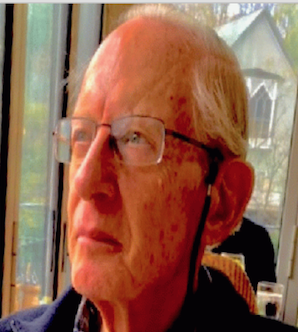You've no doubt noted the attention lately given to Medicare for All legislation by Senator Bernie Sanders and Congresswoman Pramila Jayapal. As welcome as an improved Medicare would be, preservation of original Medicare is absolutely necessary to support the seniors and the disabled who have come to depend on it for over a half-century. Too little attention has been given to the erosion of public support for Medicare through health-insurance industry attempts to privatize the operation of this social insurance, as well as to destroy our conception of it as an entitlement.
I feel the need to address this danger to the public's welfare out of my commitments as an educator and from knowledge I've acquired in more than a half-century of work in health policy, including community health planning, state health regulation and public health. I acquired a license as a health-insurance agent in NJ in 1992 in order to better understand insurance from a consumer/patient perspective.
Medicare Advantage (MA) plans are private insurance plans that replace traditional Medicare coverage. Medicare coverage includes virtually all physicians and hospitals in the U.S., but MA offers only restricted provider panels. A consumer's primary-care physician may be in that panel, but the consumer may develop problems that are best handled by physicians and facilities that are out of network, with the result that the consumer will be hit with hefty fees. This is even more important when it comes to emergency care. An MA subscriber who has an emergency and is taken to an ER may be treated by an out-of-network physician, and receive a bill from that physician.
If an MA patient is in a nursing home or rehab facility, utilization-review nurses at that patient's MA plan - not the patient's treating physicians - will make the ultimate decisions as to whether nursing care is medically necessary. The post-hospitalization facility available to consumers is likely to be the one with the worst reputation. Prescriptions may cost more too. Consumers need to know that health insurers make most of their profits by denying or reducing effective coverage, and they do that mostly by establishing networks. Traditional Medicare has no networks.
The greatest risk to consumers is that some private plans may not be financially stable and may suddenly cease coverage, leaving consumers unprotected. What a reasonable person should conclude from this is that it is fraudulent to permit private health insurance to use the name Medicare for any of its profit-making plans. Medicare is held in such high regard that private companies feel the need to steal its brand. As the saying goes, hypocrisy is the tribute that vice pays to virtue.
What most aggrieves me is how Congress provides extra taxpayer funding as subsidies to private health-insurance companies in order to encourage them to seduce Medicare beneficiaries into giving up traditional Medicare. Those bonuses are costing Medicare--i.e., taxpayers--billions of dollars every year. Health insurers use that taxpayer funding to offer teaser benefits to consumers. Almost all seniors have gotten a piece of mail that looks like a notice from the IRS or Medicare. The flyer is headlined "Medicare Notice.", and "Please call to confirm your eligibility." But not for Medicare: for MA. In tiny print in the lower right-hand corner is this: "Medicare has neither reviewed nor endorsed the information contained in this advertisement."
You've probably seen the MA marketing commercials with Joe Namath, but have you asked yourself why insurance companies are paying to advertise their "benefits" to consumers? Their commercials are labeled "Medicare Coverage Helpline", and they include some tiny print that is purposely made too small to read on your TV screen. What it says is, "The Medicare Coverage Helpline is a private for-profit lead generation campaign and does not offer insurance and is not an insurance agency or broker. Your call is sold to a licensed insurance agent."
(Note: You can view every article as one long page if you sign up as an Advocate Member, or higher).




